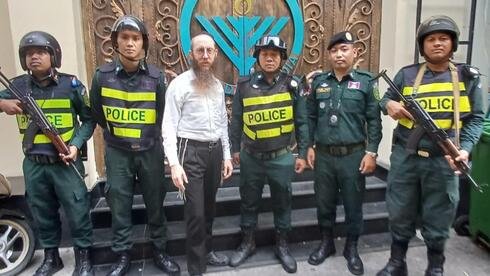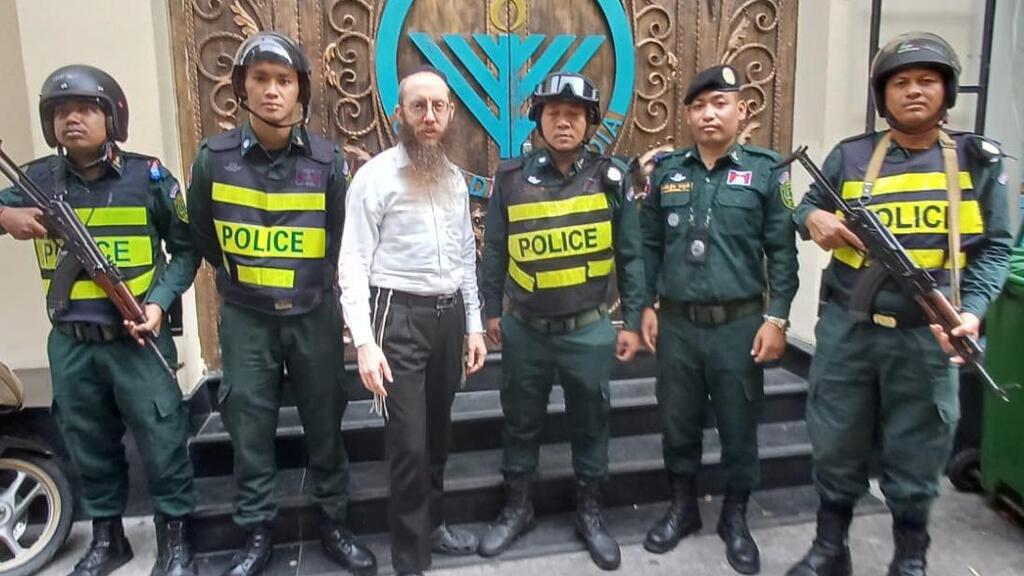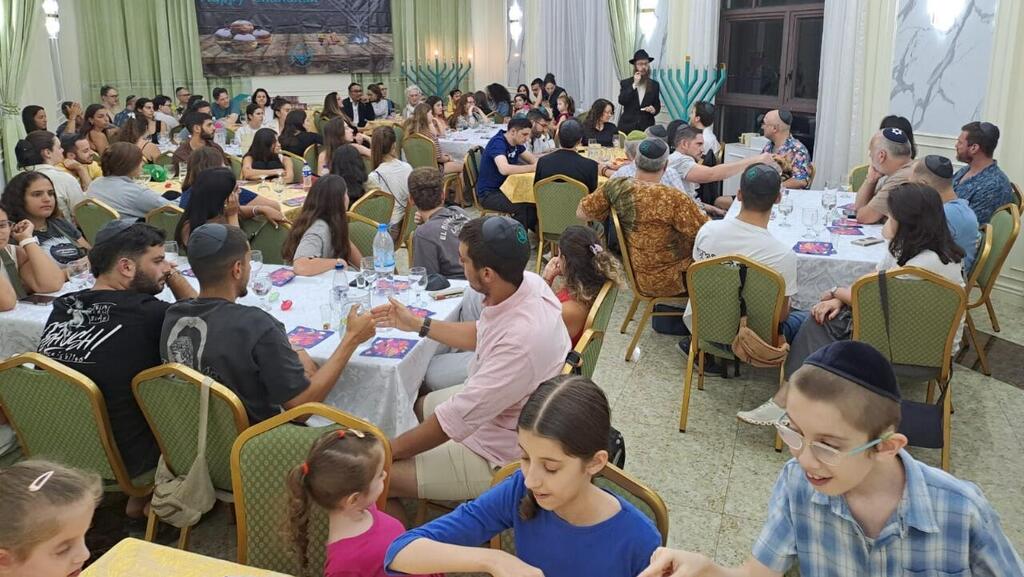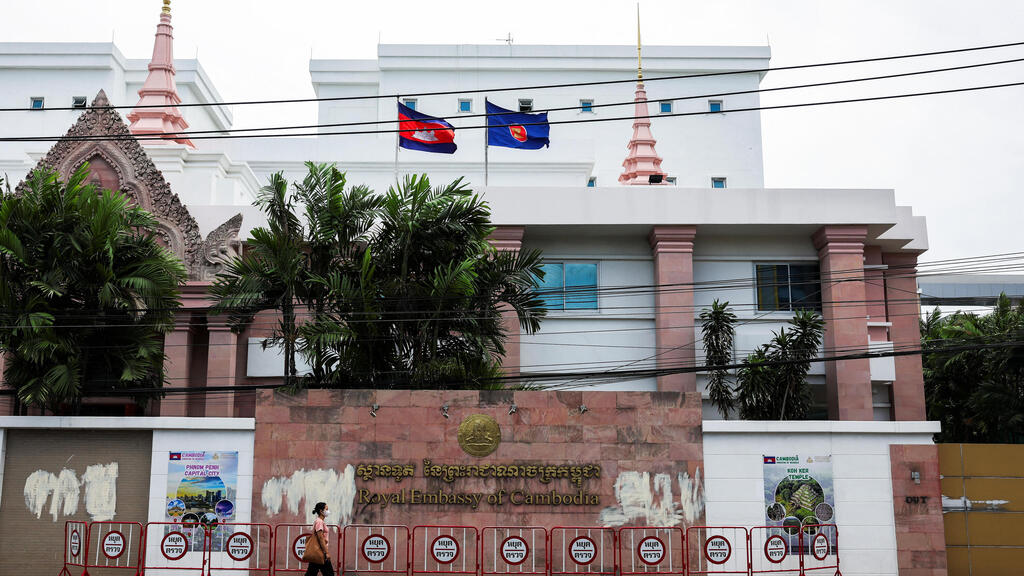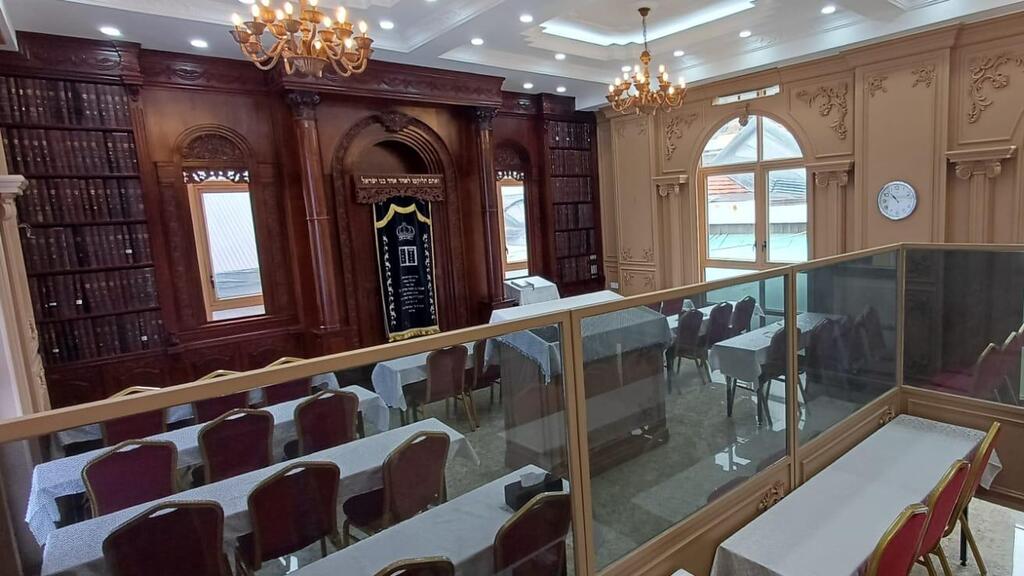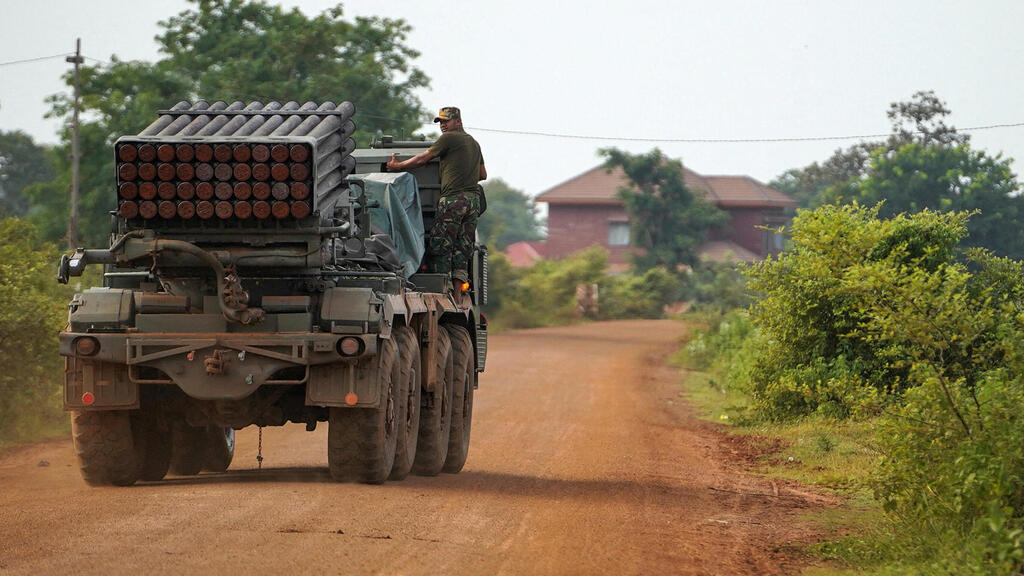That relative quiet ended abruptly in 1975 with the rise of the Khmer Rouge. The dark years of genocide (1975–1979) spared no one. Foreigners, including the few Jews remaining, were expelled or murdered. Any trace of Jewish life was erased, and Cambodia entered a long period of isolation and recovery.
It wasn’t until the late 1990s that Jewish presence in Cambodia began to return—not from the descendants of those early Jews, but from a new wave of Israeli and international Jews, including Chabad emissaries, businesspeople, humanitarian workers and the curious and adventurous.
Jewish life today in Cambodia is centered in Phnom Penh. Sixteen years ago, Rabbi Bentzion Butman and his wife Mashi established a Chabad House there. When they first arrived, there was no infrastructure, and they realized they would have to build it all from scratch. They didn’t rush—they spent four years getting to know the city, forging connections, and learning the landscape before purchasing land and constructing a tall building with a beautiful view: the Chabad House of Phnom Penh.
Their vision was clear from the start—to create a welcoming home for any Jew, whether tourist, businessperson, diplomat, or resident. Today, they live in the capital with their nine children, most of whom were born in Cambodia. The Chabad House now serves as the beating heart of the local Jewish community.
Many Israelis come to Cambodia for business—real estate, import/export, tourism—or as part of long backpacking trips. Over time, a growing community of international Jewish businesspeople from the U.S., Canada, Australia and Europe has also made Phnom Penh home, either temporarily or long-term, seeking connection to their Jewish identity.
I had the pleasure of joining a Friday night Shabbat dinner with members of the community and visitors from the U.S., Gibraltar, France and, of course, Israel. The atmosphere was warm and festive. I spoke with several nonreligious tourists who said the experience had changed their perception of Chabad. Some admitted that they once held a different view of the emissaries but now saw them in a new, more positive light.
Rabbi Butman explained that, due to the rainy season, tourism is currently low, but they’ve previously hosted 150 guests for Shabbat dinners and 300 for holiday meals. During meals, the rabbi personally visits each table, greeting guests with a warm smile and sincere curiosity about where they’re from. Chabad staff—young local workers in matching uniforms—served the food. Their shirts bore a powerful slogan: “No Jew left behind.”
When asked about antisemitism, especially since October 7, 2023, he noted that, until then, antisemitism had been virtually nonexistent in Cambodia. Since the Hamas attack, however, plainclothes security personnel have been stationed daily near the Chabad House.
Visitors don’t come only for meals—they also help form a minyan for Shabbat, holidays and even occasional weekday prayers. The synagogue is strikingly beautiful, with its unique design, Jewish symbols, and sacred atmosphere.
One standout feature is the women’s section. Unlike many synagogues, where it’s placed on a separate upper floor, here it’s positioned in the center of the sanctuary. A one-way glass partition allows women to see the ark and Torah scrolls while remaining part of the communal space—an intentional design by the rabbi and his wife to ensure inclusivity in prayer.
The Chabad House also offers free internet and phone calls to Israel, a kosher restaurant with affordable prices, and a small kosher store that brings a taste of home to visiting Israelis. There are also dorm-style rooms for backpackers and upscale accommodations for business travelers.
Kosher meat and poultry are imported from Thailand, Vietnam and South Africa. A mohel (ritual circumciser) is not locally available, so one is flown in from nearby countries when needed, most recently from Hong Kong.
The Chabad building includes mikvehs for both men and women, which are also used for koshering dishes. A Jewish cemetery is located about a 40-minute drive away. Securing a burial site was difficult, as local Cambodians fear the dead and spiritual energy. Eventually, a plot was acquired, and 10 people are now buried there.
No visit to Phnom Penh is complete without confronting its painful past. I visited the Choeung Ek Killing Fields, a chilling reminder of the Khmer Rouge genocide. Once a site for mass executions of prisoners from the S-21 prison, the grounds still reveal bone fragments and clothing from the victims.
The central stupa, filled with thousands of skulls and bones, stands as a visual and emotional monument to the horror. There are no flashy digital displays—just a walking path and an audio guide that takes visitors past mass graves, trees where infants were killed, and simple signs bearing harrowing testimonies.
It’s not an easy visit, but it’s essential to understanding Cambodia’s complex history and honoring the victims’ memory.
Phnom Penh’s Jewish community remains small and faces natural challenges due to distance and limited resources. But for Rabbi Butman, “difficulty” is not part of his vocabulary.
They import kosher goods and boast what he says is one of the largest Jewish libraries in Asia (outside Israel). Each year, young teachers come from Israel to teach Hebrew and become part of the community.
When I suggested that the local community is transient—made up mostly of tourists, emissaries and short-term businesspeople—he disagreed. For him, the mission is to keep creating, organizing, and innovating to make Phnom Penh feel like home for any Jew, no matter how far they are from their real one.
In a non-Jewish environment, maintaining Jewish education and tradition requires dedication. There is no Jewish day school in the city, so the Butmans homeschool their children in the mornings and supplement with Chabad’s global online school, allowing their kids to connect with peers worldwide.
The Chabad House in Phnom Penh is a testament to the enduring Jewish spirit—to its ability to survive, adapt and flourish even in the most distant corners of the world. The encounter with the Jews of Phnom Penh is a moving story of survival, renewal and identity. It’s a reminder that, even after devastation, the spark of hope never fully fades.
Ayelet Mamo Shay is a businesswoman, author, international lecturer and researcher of Jewish communities around the world



